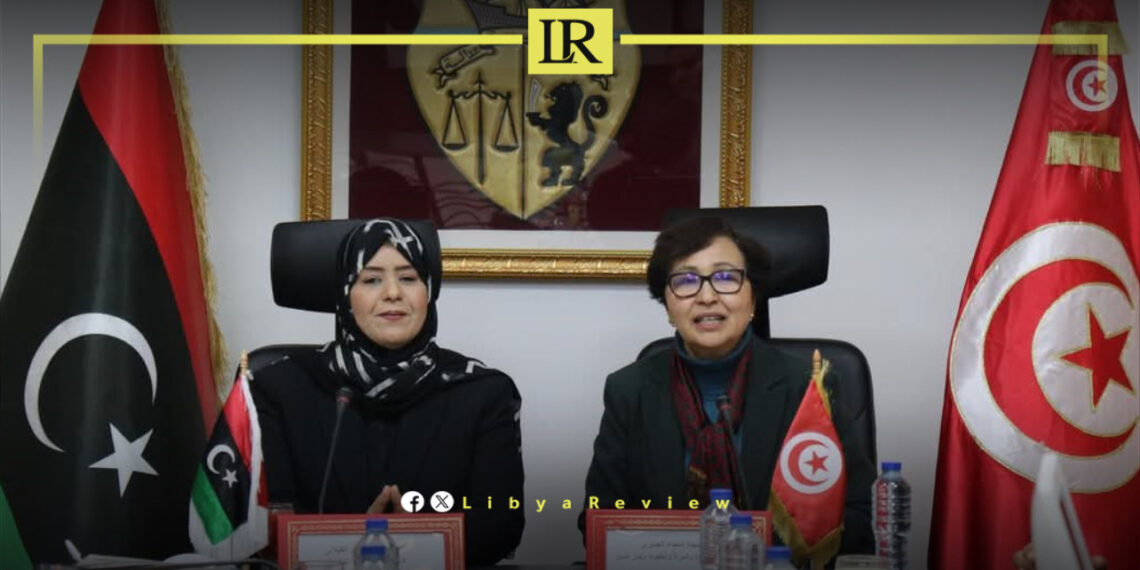On Saturday, Libya’s Minister of Social Affairs, Wafaa Abu Bakr Al-Kilani, met with Asma Al-Jaberi, Tunisia’s Minister of Family, Women, Children, and the Elderly, during a two-day visit to Tunisia. Their discussions focused on strengthening cooperation in child protection, family welfare, and women’s empowerment.
During the meeting, Al-Kilani presented Libya’s strategies for early childhood programs, orphan support, and economic empowerment for women and families.
She emphasized the country’s commitment to protecting children and enhancing family well-being. She also highlighted the role of the Arab Organization for Family and Social Development, which she leads, in promoting these efforts across the Arab world.
The ministers agreed to establish a joint committee to design structured child protection programs. They also decided to draft a Memorandum of Understanding (MoU) to formalize future cooperation between the two ministries. Al-Kilani expressed Libya’s eagerness to strengthen its partnership with Tunisia in social work and knowledge exchange.
Both countries face pressing social challenges. Libya has been rebuilding its social infrastructure after years of conflict, while Tunisia continues to refine its policies to support families and vulnerable groups. This agreement reflects a broader commitment to protecting children and reinforcing social stability in North Africa.
Libya has faced significant challenges over the past decade. Since the 2011 revolution that led to the fall of Muammar Gaddafi, the country has struggled with political instability, armed conflicts, and economic difficulties. This turmoil has deeply affected social structures, leaving children, women, and vulnerable communities at high risk.
Despite these challenges, Libya has been working to rebuild its institutions, including those focused on social welfare. Efforts to improve child protection, education, and economic empowerment for women have gained momentum. However, the need for regional cooperation remains crucial, especially with neighboring Tunisia, which has historically shared strong ties with Libya in trade, migration, and social development.


